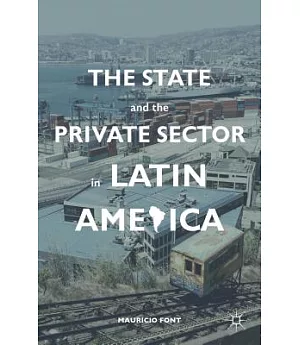Font’s succinct review of ten Latin American countries tells a fascinating account of the rise of public-private collaboration in a world region embattled until recently by advocates of
statism and market reforms. This volume shows innovative responses to dilemmas posed by growing demands and fiscal constraints. These emergent strategies are part of learning processes
embedded in reform initiatives. The review of ten states identifies conditions shaping the adoption and fate of public-private collaboration in the provision of large infrastructural
undertakings. Detailed discussions explore links to the liberalization drives of the last part of the twentieth-century while viewing this phenomenon as a distinctive strategy responding to
changing global realities. While most studies of public-private partnership (PPP) focus on narrow technical aspects, this volumes thus provides a broad institutional, political and economic
framework in which to make sense of dynamics. The proliferation of public-private collaboration is shown to be a result of the region’s long struggle for state forms able to promote
development. External forces help shape success or failure.





















